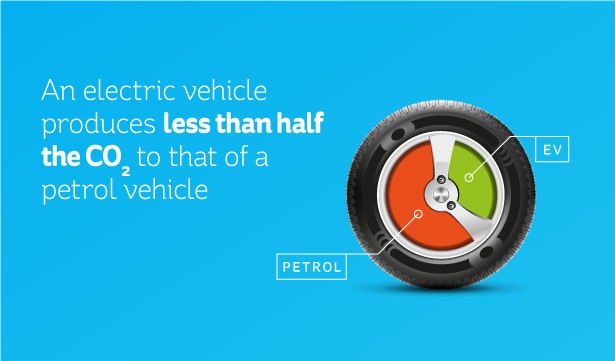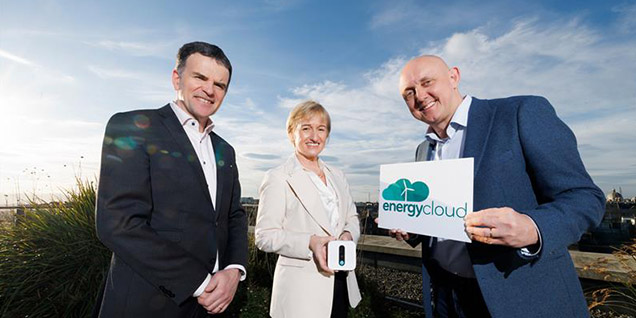How an Electric Vehicle Can Lower Your Carbon Footprint

Driving an electric vehicle has many advantages for the average motorist but there are other benefits that extend to the community at large. One of these is a reduction in greenhouse gases per kilometre driven.
According to Sustainable Energy Authority of Ireland (SEAI) figures, an EV produces around 60g of CO2 per km while a petrol vehicle produces around 130g of CO2 per km.
Electric vehicles save on carbon by two means - by being more efficient in terms of energy used per kilometre and from the lower carbon dioxide (CO2) per joule (raw unit of energy) produced by the national grid vs. the engine in a petrol/diesel vehicle.
The Efficiency of an Electric Vehicle
Efficiency in this case is the amount of energy that is used to propel the vehicle vs. the amount of energy stored as fuel or in the battery. Electric vehicles are more efficient than internal combustion engines (petrol, diesel etc) for several reasons.
To drive a petrol or diesel engine requires combustion which wastes some of the finite amount of energy contained in its fuel as heat.
Secondly, a fossil fuel engine runs for the duration of a journey while an EV only consumes power as it drives. Sitting, idling in traffic with a petrol engine for instance is a 100% waste of energy, while ‘idling’ in an electric vehicle will not consume any power beyond what its occupants are using i.e. radio, fans, phone charger etc.
As a result, the efficiency of a petrol vehicle is 17-21% while a diesel will fare slightly better on average. An electric vehicle will convert around 60% of its battery’s energy to driving the wheels.
Ireland: Heading in the Right Direction
In Ireland, around 33% of our electricity was generated by renewable sources in 2018 and that figure is growing.
This level of renewable generation has resulted in the carbon intensity (the amount of carbon produced per unit of electricity generated) falling to an all time low of 376 gCO2/kWh in 2018 a fall of 13% from 2017.
Ireland has set itself a target of 40% electricity from renewable sources by 2020 and is on track to achieve that target. The recently published Climate Action Plan seeks to raise the level of renewables producing our electricity requirements to 70% by 2030. The ultimate aim of both European & National policy is to fully decarbonise electricity generation by the middle of this century.
ESB continue to invest in our wind power potential and Ireland now ranks third in the world for percentage of total electricity generated by wind power.
Outside of renewables the balance of electricity generated in Ireland comes from fossil fuels such as gas, coal and peat. Coal & peat are high carbon intensity fuels whose usage is falling and will be phased out over the coming decade thus leaving gas (which has about 1/3 the carbon intensity of coal) as the generating fuel of choice to provide the back up for increasing levels of renewable generation.
An electricity system dominated by renewables with gas generation as a back up fuel will drive the carbon intensity of generated electricity down even further, ultimately on a pathway to zero – thus making electricity the most sustainable fuel source to meet the nations transport energy requirements.
Air Quality
For urban dwellers, another advantage to EVs is that they shift their transport-related CO2 emissions away from urban areas to the power station where control measures to reduce air quality emissions are much more efficient and highly monitored. Moving CO2, NOx and particulate emissions out of dense city areas can greatly improve air quality.
You, as an individual, can play your part by going electric. The more kilometres you switch from petrol/diesel to electric, the more CO2 you keep out of the atmosphere. For a convenient comparison, ESB’s eCars Cost Calculator can help bring the potential reduction in carbon footprint to life.
Thinking about buying an Electric Car?
Here are 3 things to think about to help you make your decision.


.jpg?sfvrsn=a8e55b2d_1)
.jpg?sfvrsn=4af3303_1)